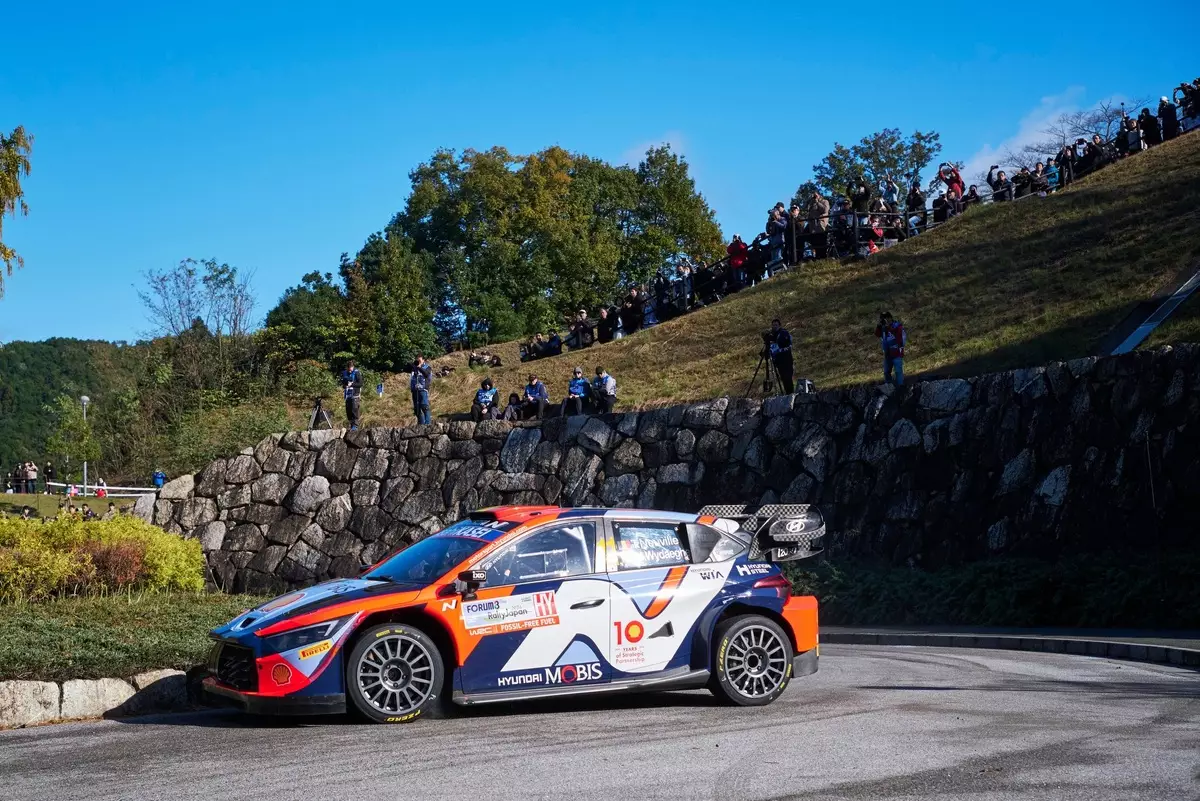The World Rally Championship (WRC) is no stranger to challenges, but as Thierry Neuville faced unexpected power issues during Rally Japan, his resilience and determination were put to the ultimate test. Contending for the championship title, the Belgian’s Hyundai i20 N lost significant power during stage four, a setback that could have dire implications for his championship ambitions. This incident highlights not only the unpredictability of motorsport but also the psychological fortitude required to navigate such hurdles.
Neuville’s championship fate was precariously close; he needed merely six points from the weekend’s events to secure his first WRC title. Coming into Rally Japan, his confidence appeared bolstered—after all, he clinched victory in the morning’s first stage, temporarily positioning him just behind rival and teammate Ott Tanak. However, the sudden deceleration of his vehicle shifted the narrative dramatically, pushing Neuville to third place and placing him 40.2 seconds behind the rally leader, Elfyn Evans of Toyota.
This scenario raises an interesting point about the mental game in competitive racing. It’s not simply about the machine’s performance; the psychological resilience to recover mentally and tactically from setbacks is crucial. Neuville’s calculated reflections indicate a determined mindset, but the absence of a midday service to rectify the car’s issues certainly stifled his options.
The inherent nature of rallying compels drivers to diagnose problems on the fly, and Neuville’s attempt to quickly assess the situation illustrated the multifaceted challenges faced by drivers. He expressed uncertainty about the nature of the power loss, although he optimistically noted that it did not appear to be mechanical—an encouraging sign for his team. The complexity of motorsport machinery, where so many interconnected parts function under intense conditions, lends itself to unpredictable failures that can derail even the best-laid plans.
Neuville’s admission that he had been satisfied with his i20 N’s setup prior to the issue speaks to a deeper issue that many drivers face: the fine line between confidence and complacency. The quick adjustments made following the first stage were wise, but the unforeseen technical hindrance showcased the chaotic essence of rallying—where one’s fortune can turn in an instant.
With the ongoing loop of stages and the subsequent Okazaki Super Special stage approaching, Neuville’s future in the competition remains in question. Although he initially aimed for a podium finish, the circumstances have shifted, demanding a recalibrated strategy. The resilience demonstrated in motorsports, where drivers often have to manage their vehicle’s limitations while still vying for top positions, emphasizes the unpredictability and excitement of the sport.
Ultimately, as fans and competitors await the unfolding events of Rally Japan, Neuville’s journey serves as a testament to both the challenges rally drivers face and the spirit of perseverance that defines the WRC. The championship implications are monumental, yet the blend of strategy, resilience, and adaptability will dictate not only Neuville’s fate but also the thrilling narrative of this year’s championship season.

